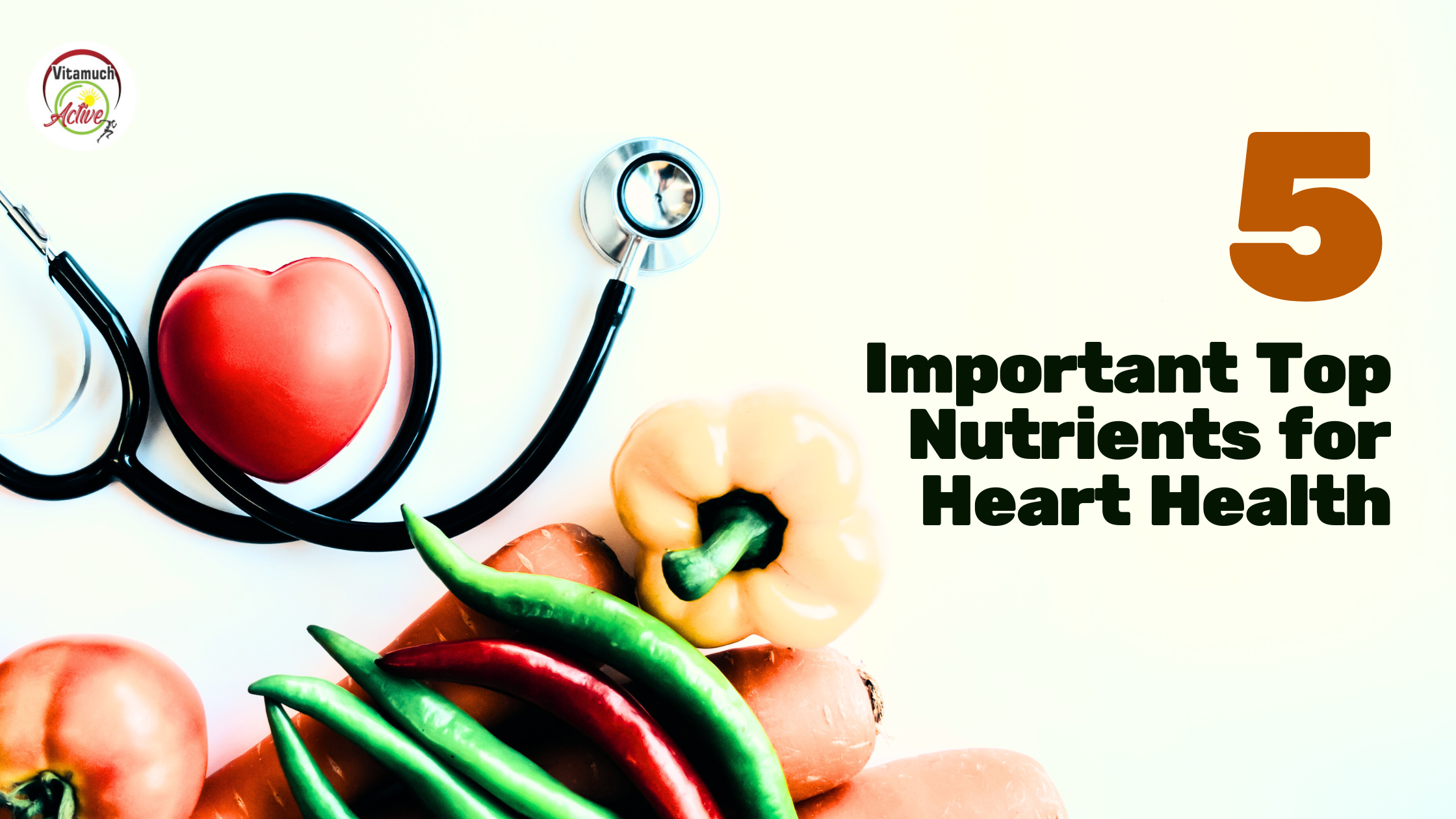5 Important Top Nutrients for Heart Health

Heart health is essential for overall well-being, especially in India, where heart disease has become a growing concern due to lifestyle factors such as stress, unhealthy eating, and lack of physical activity. One effective way to support heart health is through proper nutrition. Indian cuisine offers a wide variety of nutrient-rich foods that can help keep your heart strong & healthy. Let’s learn five essential nutrients for heart health; along with the best food sources to incorporate into your diet.
1. Omega-3 Fatty Acids
Omega-3 fatty acids are essential for maintaining heart health as they help reduce inflammation, lower blood pressure, & prevent harmful blood clots. These healthy fats also help lower triglyceride levels & improve overall heart function. While fatty fish like salmon and sardines are common sources of omega-3 in other cuisines, Indian foods like hilsa (ilish fish), rohu, and mackerel (bangda) are excellent choices.
For vegetarians, flaxseeds (alsi) and walnuts (akhrot) are great plant-based sources of omega-3 fatty acids. You can easily incorporate these into your diet by adding flaxseed powder to your rotis or mixing walnuts into your snacks & salads. For those looking for extra support, consider omega-3 nutritional supplements.
2. Magnesium
Magnesium plays an important role in maintaining normal heart rhythm & regulating blood pressure. This mineral helps relax blood vessels, improving circulation and reducing the risk of hypertension. In Indian cuisine; magnesium can be found in foods like spinach (palak), fenugreek leaves (methi), lentils (dal), chickpeas (chana), & pumpkin seeds (kaddu ke beej).
Incorporating these foods into your meals is easy. For example; make a palak paneer or add methi leaves to your chapati dough for a magnesium-rich diet. Lentil-based dishes like dal tadka or chana masala are also great options to help meet your magnesium needs.
3. Amino Acids
Amino acids are the building blocks of protein, which are essential for the repair and maintenance of heart muscles. Some specific amino acids, like L-arginine, help produce nitric oxide, which relaxes blood vessels and improves circulation. In Indian diets, dairy products like paneer and curd (dahi), pulses (dal), and soybeans are excellent sources of amino acids.
For vegetarians, combining legumes with rice or roti forms a complete protein that provides all the essential amino acids your body needs. Including dishes like rajma chawal or dal with rice in your diet is a delicious way to ensure you get enough amino acids for heart health.
4. Fibre
Fibre, especially soluble fibre; helps reduce cholesterol levels by binding to cholesterol in the digestive system and preventing its absorption. Lowering LDL (bad) cholesterol is key to reducing the risk of heart disease. Indian foods rich in fibre include oats, whole grains like wheat (gehun), barley (jau), and legumes (pulses) such as moong dal and chickpeas (chole).
Start your day with a bowl of oats or a wheat dosa; and include more whole grains in your meals like brown rice or barley khichdi. Legume-based dishes such as chole or pulses salads are excellent sources of fibre that also support digestion.
5. Vitamin D
Vitamin D is essential for heart health as it helps regulate calcium levels, which are critical for heart function and muscle contraction. In India, Vitamin D can be synthesised through exposure to sunlight, but for those with limited sun exposure, food sources like fortified milk, egg yolks, and mushrooms can help meet your daily requirements.
Include dishes like egg curry or mushroom masala in your meals to ensure you’re getting enough vitamin D. Additionally, vitamin D-fortified milk or curd can easily be included in your daily diet. If you’re still not getting enough, vitamin D supplements may be a good option to support your heart.
Maintaining heart health is about more than just exercise and stress management—it requires a diet rich in essential nutrients. Omega-3 fatty acids, magnesium, amino acids, fiber, and vitamin D all play critical roles in promoting heart health and reducing the risk of cardiovascular disease.
Indian cuisine offers a wealth of nutrient-rich foods that can help meet these needs. By incorporating ingredients like fish, leafy greens, lentils, and whole grains into your daily meals, you can ensure your heart stays strong. If you’re unable to meet your nutritional needs through food alone, multivitamins for energy and other nutritional supplements can help bridge the gap.
